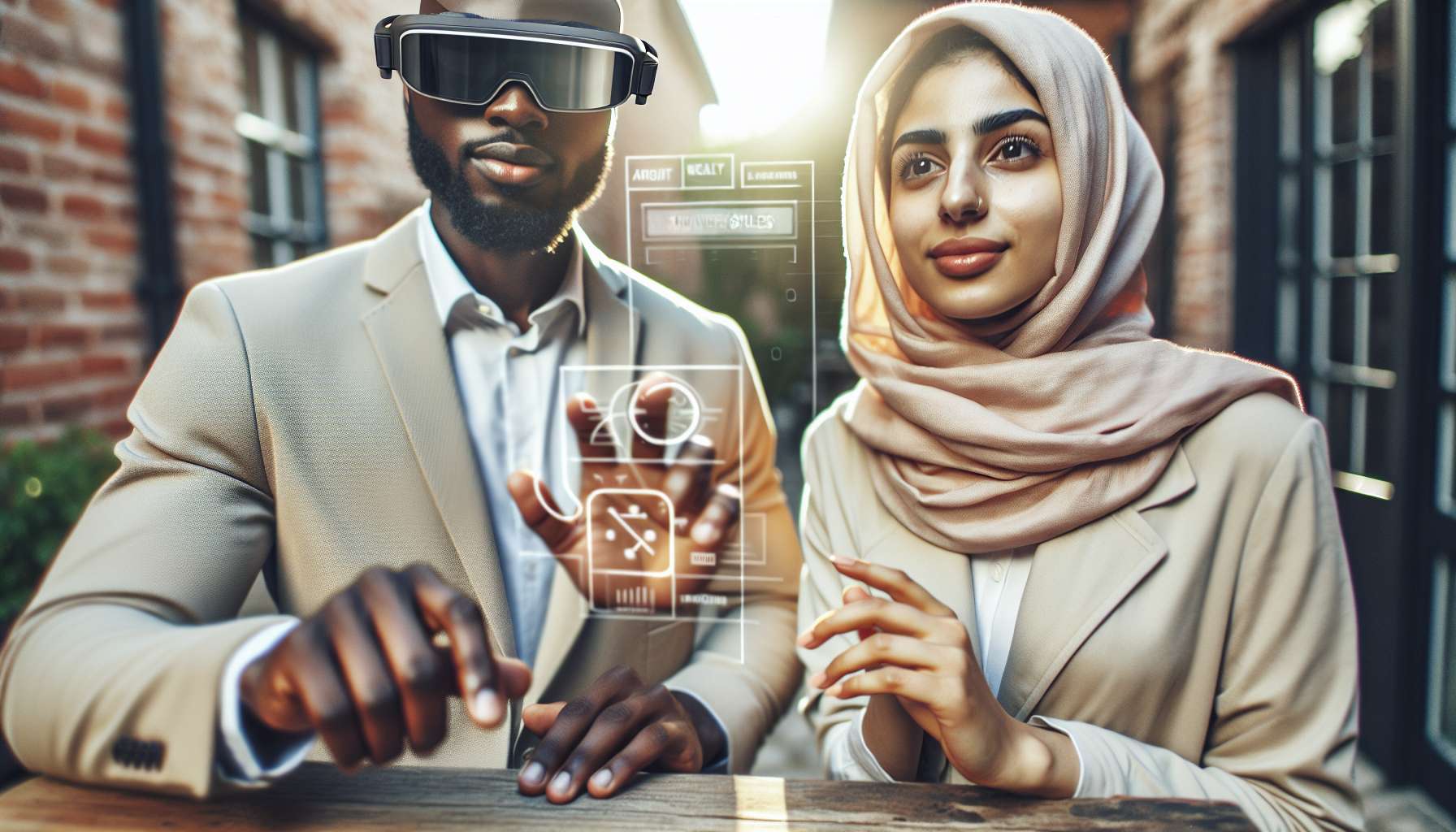Revolutionizing B2B Machinery Sales with Immersive Augmented Reality Experiences
As technology continues to advance at an unprecedented pace, businesses are constantly seeking innovative ways to enhance their operations and improve their bottom line. One such technology that has gained significant traction in recent years is augmented reality (AR). By overlaying digital information onto the real world, AR has the potential to transform the way B2B machinery sales are conducted, offering a range of benefits for both buyers and sellers.
What is Augmented Reality?
Before we delve into the exciting possibilities of using augmented reality in B2B machinery sales, let’s first understand what AR is all about. Augmented reality is a technology that superimposes computer-generated images, videos, or information onto the real world, enhancing the user’s perception and interaction with their surroundings. Unlike virtual reality, which creates an entirely immersive digital environment, AR blends the virtual and physical worlds together.
Enhancing the B2B Machinery Sales Process
Traditionally, B2B machinery sales involve complex negotiations, lengthy sales cycles, and the need for physical product demonstrations. Augmented reality has the potential to streamline this process and provide a more immersive and engaging experience for both buyers and sellers. Here are some key ways AR can enhance B2B machinery sales:
- Virtual Product Demonstrations: With AR, potential buyers can visualize and interact with machinery in a virtual environment, eliminating the need for physical prototypes or on-site visits. This not only saves time and resources but also allows buyers to explore different features and configurations in real-time.
- Remote Collaboration: AR enables remote collaboration between sales teams, engineers, and clients. By using AR-enabled devices, stakeholders can share real-time information, annotate 3D models, and provide instant feedback, regardless of their physical location. This fosters better communication and speeds up the decision-making process.
- Customization and Personalization: B2B machinery sales often involve complex configurations and customization options. AR can help buyers visualize how different components or modifications will look and function in their specific environment. This level of customization not only enhances the buying experience but also reduces the chances of post-purchase dissatisfaction.
- Training and Maintenance: AR can be utilized beyond the sales process to provide training and maintenance support. By overlaying step-by-step instructions or real-time data onto machinery, technicians can quickly diagnose issues, perform repairs, and train new employees more efficiently.
Real-World Success Stories
Several companies have already embraced augmented reality to revolutionize their B2B machinery sales. For example, a leading industrial equipment manufacturer implemented AR technology to provide virtual product demonstrations to potential buyers. This resulted in a 30% reduction in the sales cycle and a significant increase in customer satisfaction.
In another instance, a construction machinery supplier utilized AR to offer on-site training and maintenance support to their clients. This not only reduced downtime but also improved the overall efficiency and safety of their operations.
The Future of B2B Machinery Sales
The potential of augmented reality in B2B machinery sales is immense, and the technology is only expected to grow in popularity. According to market research, the global AR market is projected to reach $70 billion by 2023, with a significant portion of this growth driven by B2B applications.
As businesses continue to embrace digital transformation, incorporating augmented reality into their sales strategies will become a competitive advantage. By providing immersive and interactive experiences, companies can differentiate themselves from their competitors, increase customer engagement, and ultimately drive higher sales.
Conclusion
Augmented reality is revolutionizing the way B2B machinery sales are conducted. By leveraging AR technology, businesses can offer virtual product demonstrations, enable remote collaboration, provide customization options, and enhance training and maintenance processes. Real-world success stories demonstrate the tangible benefits of incorporating AR into B2B machinery sales. As the technology continues to evolve, it is crucial for businesses to stay ahead of the curve and explore the immense potential of augmented reality in transforming their sales strategies.





